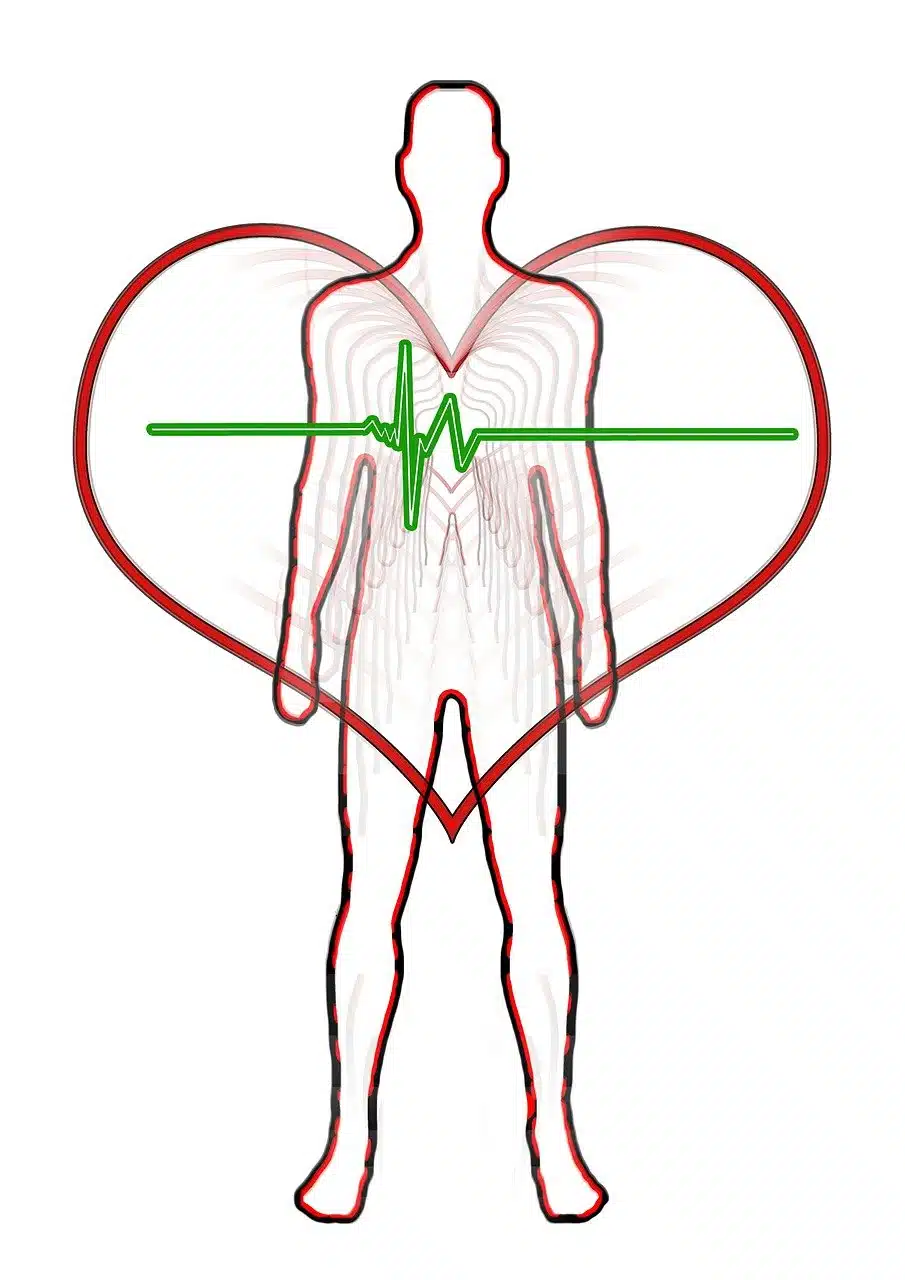Why body, soul and spirit inevitably belong together
In modern medicine, the focus is often on treating specific symptoms. However, more and more studies and experiences are showing this: Sustainable health requires us to look at people as a whole – body, soul and spirit. Holistic health is not a luxury, but a necessity in order to remain healthy and productive in the long term. In particular, the influence of stress on physical processes and the associated vicious circle of increased nutrient consumption deserves special consideration.
Stress as a cause and amplifier of physical complaints
Stress is omnipresent in our fast-paced world. Whether it’s excessive demands at work, private worries or chronic time pressure – stress not only affects us emotionally, but also physiologically. The so-called cortisol axis plays one of the central roles here.
The cortisol axis: a look into the physical network
The cortisol axis, also known as the hypothalamic-pituitary-adrenal axis (HPA axis), is a central component of our stress response. When stress is perceived, the hypothalamus releases the hormone CRH (corticotropin-releasing hormone), which stimulates the release of ACTH (adrenocorticotropic hormone) in the pituitary gland. This reaches the adrenal glands via the blood, which then release cortisol.
Cortisol is a vital hormone that helps to provide energy, inhibit inflammation and increase alertness in acute stress situations. However, in chronic stress, cortisol levels remain permanently elevated – with serious consequences. In the long term:
- Immunosuppression: The immune system is weakened and infections become more frequent.
- Increased nutrient consumption: Stress increases the need for micronutrients such as magnesium, zinc and B vitamins.
- Metabolic disorders: Chronic stress can lead to weight gain, insulin resistance and increased blood pressure.
- Damage to the nervous system: concentration problems, sleep problems and an increased risk of burnout are common.
The vicious circle: increased nutrient consumption and stress
The increased cortisol level increases the consumption of important nutrients that the body urgently needs to cope with stress. However, if these are lacking due to an unbalanced diet or a permanently high requirement, the body enters a vicious circle:
- Stress increases nutrient consumption.
- A lack of nutrients worsens stress resistance.
- Increased stress puts further strain on the cortisol axis.
- The consequences are exhaustion, illness and mental overload.
Stress also impairs intestinal health as it inhibits the production of digestive enzymes and weakens the intestinal barrier. This can lead to poorer nutrient absorption and further deficiency symptoms.
Complex microtraumatization in childhood and its effects
An often underestimated factor for long-term health is micro-traumatization in childhood. These subtle, recurring stress situations, such as emotional neglect, excessive demands or constant conflicts in the family environment, have a lasting impact on the development of the nervous system and the stress axis.
Neural networks and the stress axis
Childhood experiences influence the maturation of neuronal networks, particularly in the areas of the brain responsible for stress regulation and emotional processing. Recurrent stress can cause the HPA axis to become hypersensitive. The result is a permanent overactivation of the stress response, even with comparatively minor stresses.
These changes not only have an impact on mental health, but also on physical health. Studies show that people with stressful childhood experiences have a higher risk of:
- Chronic diseases such as cardiovascular diseases or diabetes,
- Mental disorders such as anxiety, depression or PTSD,
- have disorders of the immune system.
The vicious circle of trauma and stress
Traumatic experiences in childhood often lead to dysfunctional coping strategies, which can further increase stress in adulthood. If these experiences are not dealt with, the vicious circle continues:
- Unprocessed microtraumatization permanently activates the HPA axis.
- Chronic stress worsens health and increases susceptibility to new traumas.
- Those affected develop increased symptoms that further impair their quality of life.
- Chronic stress depletes nutrients that are essential for living life to its full potential.
Ways out of the cycle
The good news is that the effects of microtraumatization can be reversible. Approaches such as psychotherapy, mindfulness exercises and targeted stress management strategies help to calm the nervous system and reprogram the neural networks. By becoming aware of these deep-rooted patterns, we can create the basis for holistic health, and I always incorporate these techniques into my holistic treatment and offer long-term support.
Understanding holistic relationships
A disturbed interaction between body, soul and spirit is not only manifested by stress symptoms. Many chronic illnesses, from autoimmune diseases to mental disorders, can be exacerbated or even triggered by stress. These factors often interact with each other:
- Psychological stresses such as anxiety or depression influence sleep and nutrition.
- Physical complaints such as pain or inflammation have a negative impact on mental health and also on nutrition. People often no longer have the energy to eat a balanced diet and turn to processed products.
- A disturbed sleep rhythm increases the stress response and damages the body’s ability to regenerate.
By understanding these relationships, we can develop customized strategies that work at all levels.
The basic principles of holistic health
A holistic approach helps to break this cycle and stay healthy in the long term. The basic principles of holistic health can be divided into the so-called “Big Five” and “Little Three”:
The Big Five
- Diet: A wholesome, nutrient-rich diet with fresh foods, high-quality fats and sufficient micronutrients forms the basis. Foods rich in magnesium, zinc, omega-3 fatty acids and B vitamins are particularly important. These include green leafy vegetables, nuts, seeds, fish and wholegrain products.
- Exercise: Regular physical activity reduces stress and promotes the release of happiness hormones such as endorphins. It doesn’t always have to be high-performance sport – even a walk in the countryside can work wonders.
- Relaxation: Techniques such as meditation, yoga or breathing exercises help to regulate the cortisol axis. Regular breaks in everyday life and conscious time for yourself create mental space.
- Sleep: Sufficient, high-quality sleep is essential for regeneration and stress management. Sleep hygiene, such as a regular sleep rhythm and avoiding screens before bedtime, is crucial here.
- Social contacts: A strong social network acts as a protective shield against stress. Spending time together with family and friends strengthens well-being and provides emotional support.
The Little Three
- Mindfulness: Consciously living in the moment reduces the perception of stress. Practices such as journaling or consciously noticing simple things in everyday life promote inner peace.
- Being close to nature: Spending time in nature calms the mind and has been proven to lower cortisol levels. Whether it’s a walk in the forest or time in the garden – nature offers valuable relaxation.
- Individual balance: Every person is unique. A holistic approach should always be tailored to individual needs. This means respecting your own limits and working specifically towards your personal health goals.
Conclusion
Holistic health is not a short-term trend, but a necessary approach to staying healthy in a stressful world. By understanding the connections between body, mind and spirit, we can not only alleviate symptoms, but also treat the causes of many ailments in a sustainable way. The path to a healthy life starts with small, conscious decisions that have a big impact over time.
As a doctor, I invite you to join me in pursuing this holistic approach. Let us address your individual needs and create a life that is characterized by balance, vitality and satisfaction. Your health is valuable – for your body, your soul and your mind.






